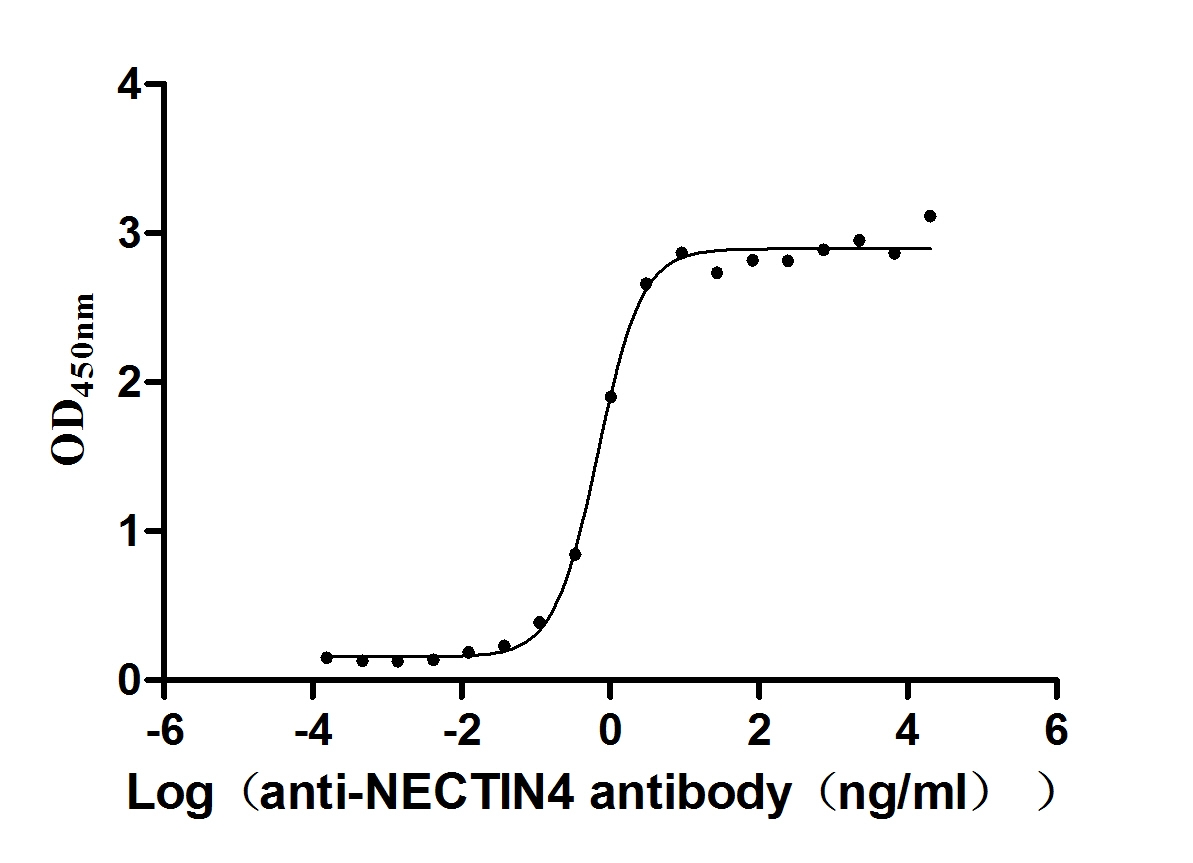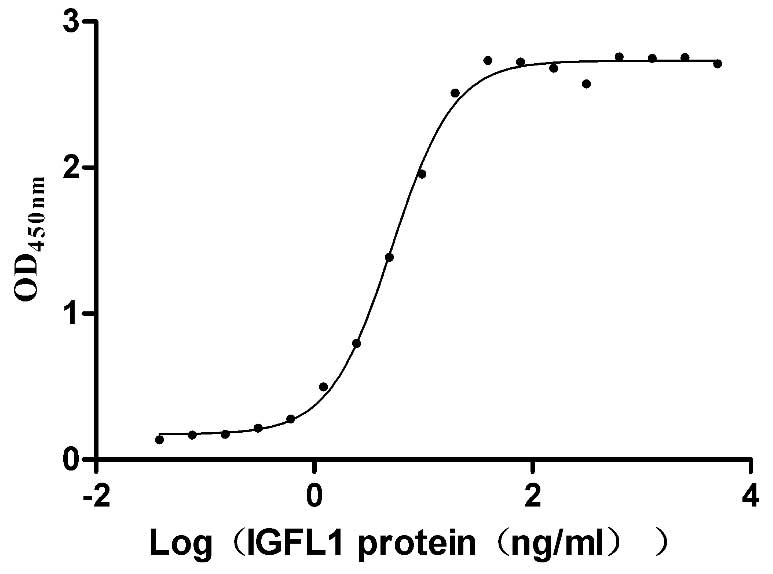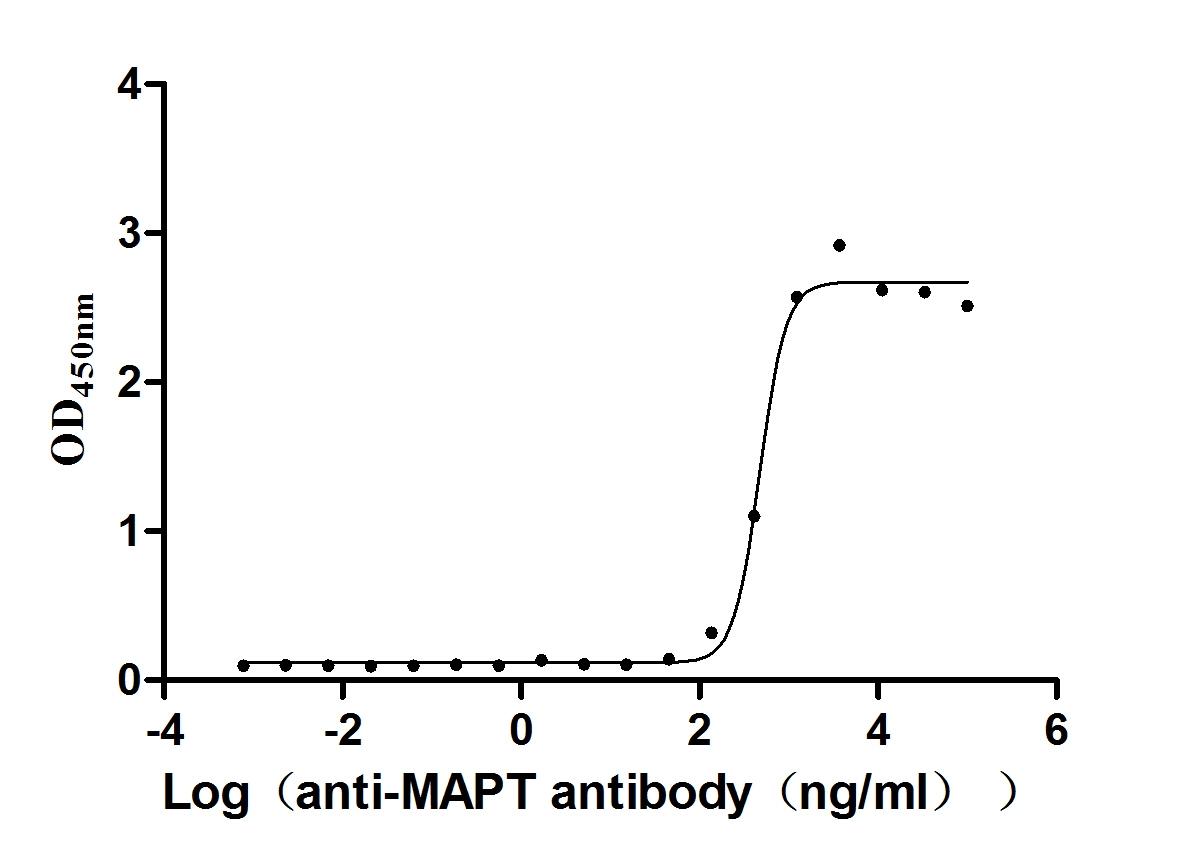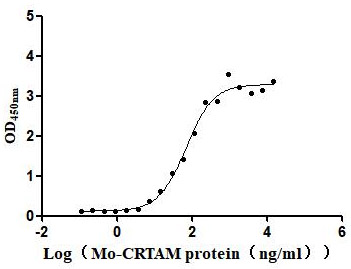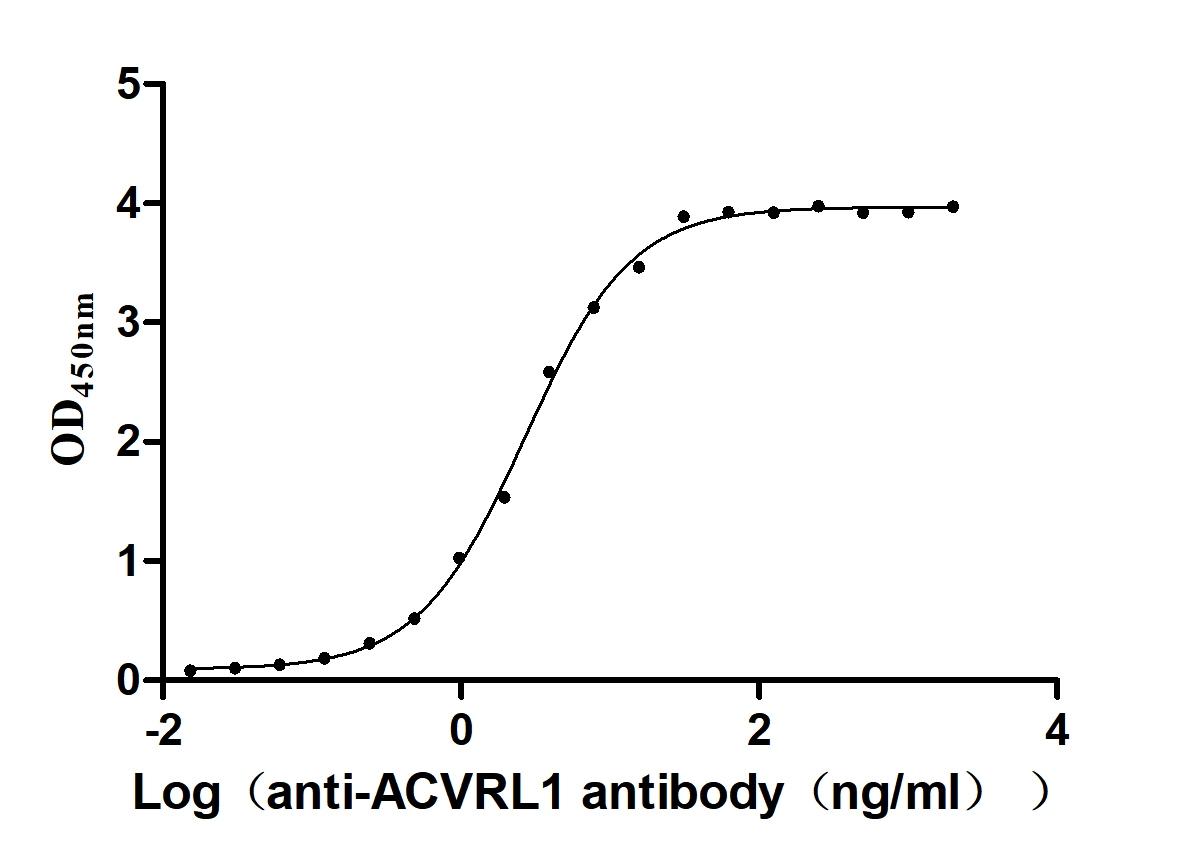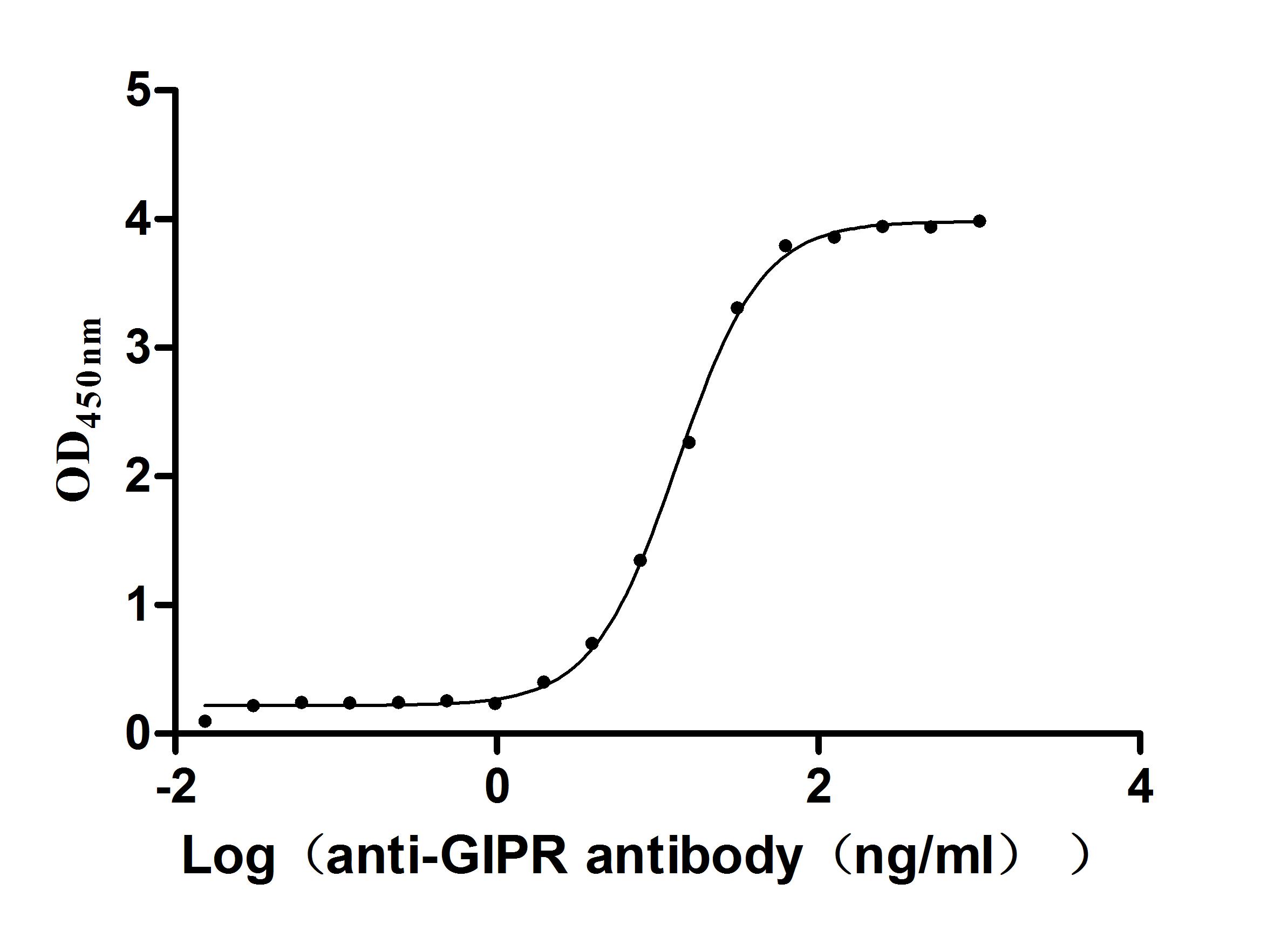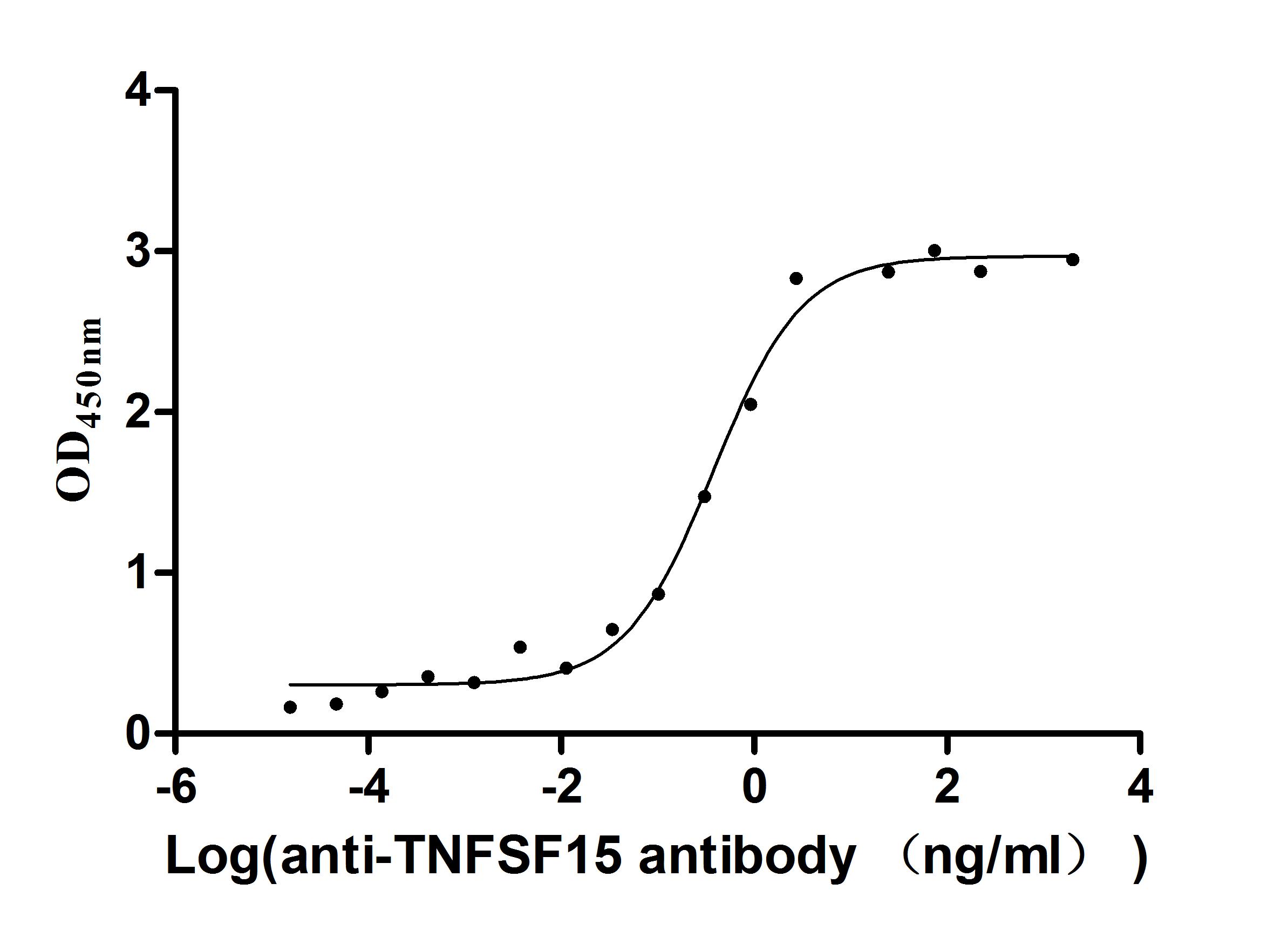Recombinant Mouse Ribonuclease 3 (Drosha), partial
-
中文名稱:小鼠Drosha重組蛋白
-
貨號(hào):CSB-YP711359MO
-
規(guī)格:
-
來(lái)源:Yeast
-
其他:
-
中文名稱:小鼠Drosha重組蛋白
-
貨號(hào):CSB-EP711359MO
-
規(guī)格:
-
來(lái)源:E.coli
-
其他:
-
中文名稱:小鼠Drosha重組蛋白
-
貨號(hào):CSB-EP711359MO-B
-
規(guī)格:
-
來(lái)源:E.coli
-
共軛:Avi-tag Biotinylated
E. coli biotin ligase (BirA) is highly specific in covalently attaching biotin to the 15 amino acid AviTag peptide. This recombinant protein was biotinylated in vivo by AviTag-BirA technology, which method is BriA catalyzes amide linkage between the biotin and the specific lysine of the AviTag.
-
其他:
-
中文名稱:小鼠Drosha重組蛋白
-
貨號(hào):CSB-BP711359MO
-
規(guī)格:
-
來(lái)源:Baculovirus
-
其他:
-
中文名稱:小鼠Drosha重組蛋白
-
貨號(hào):CSB-MP711359MO
-
規(guī)格:
-
來(lái)源:Mammalian cell
-
其他:
產(chǎn)品詳情
-
純度:>85% (SDS-PAGE)
-
基因名:Drosha
-
Uniprot No.:
-
別名:Drosha; Etohi2; Rn3; Rnasen; Ribonuclease 3; EC 3.1.26.3; Protein Drosha; Ribonuclease III; RNase III
-
種屬:Mus musculus (Mouse)
-
蛋白長(zhǎng)度:Partial
-
蛋白標(biāo)簽:Tag?type?will?be?determined?during?the?manufacturing?process.
The tag type will be determined during production process. If you have specified tag type, please tell us and we will develop the specified tag preferentially. -
產(chǎn)品提供形式:Lyophilized powder
Note: We will preferentially ship the format that we have in stock, however, if you have any special requirement for the format, please remark your requirement when placing the order, we will prepare according to your demand. -
復(fù)溶:We recommend that this vial be briefly centrifuged prior to opening to bring the contents to the bottom. Please reconstitute protein in deionized sterile water to a concentration of 0.1-1.0 mg/mL.We recommend to add 5-50% of glycerol (final concentration) and aliquot for long-term storage at -20℃/-80℃. Our default final concentration of glycerol is 50%. Customers could use it as reference.
-
儲(chǔ)存條件:Store at -20°C/-80°C upon receipt, aliquoting is necessary for mutiple use. Avoid repeated freeze-thaw cycles.
-
保質(zhì)期:The shelf life is related to many factors, storage state, buffer ingredients, storage temperature and the stability of the protein itself.
Generally, the shelf life of liquid form is 6 months at -20°C/-80°C. The shelf life of lyophilized form is 12 months at -20°C/-80°C. -
貨期:Delivery time may differ from different purchasing way or location, please kindly consult your local distributors for specific delivery time.Note: All of our proteins are default shipped with normal blue ice packs, if you request to ship with dry ice, please communicate with us in advance and extra fees will be charged.
-
注意事項(xiàng):Repeated freezing and thawing is not recommended. Store working aliquots at 4°C for up to one week.
-
Datasheet :Please contact us to get it.
靶點(diǎn)詳情
-
功能:Ribonuclease III double-stranded (ds) RNA-specific endoribonuclease that is involved in the initial step of microRNA (miRNA) biogenesis. Component of the microprocessor complex that is required to process primary miRNA transcripts (pri-miRNAs) to release precursor miRNA (pre-miRNA) in the nucleus. Within the microprocessor complex, DROSHA cleaves the 3' and 5' strands of a stem-loop in pri-miRNAs (processing center 11 bp from the dsRNA-ssRNA junction) to release hairpin-shaped pre-miRNAs that are subsequently cut by the cytoplasmic DICER to generate mature miRNAs. Involved also in pre-rRNA processing. Cleaves double-strand RNA and does not cleave single-strand RNA. Involved in the formation of GW bodies.
-
基因功能參考文獻(xiàn):
- Drosha knockout indicated a role for let-7 miRNAs in developmental hematopoiesis. PMID: 28743859
- Identification of Microprocessor component DROSHA as a novel DNMT1-interactor. PMID: 28934503
- Results show that Mammalian DROSHA genes have evolved a conserved hairpin structure spanning a specific exon-intron junction serving as a substrate for the microprocessor in human but not in murine cells. PMID: 28400409
- Knockdown of NFIB in Drosha-deficient hippocampal neural stem cells restores neurogenesis, suggesting that the Drosha/NFIB mechanism robustly prevents oligodendrocyte fate acquisition in vivo. PMID: 27545503
- FMRP is involved in pri-miRNA processing via enhancing DROSHA expression that may play an important role in fragile X syndrome. PMID: 26993298
- our findings suggest that DROSHA is involved in stromal decidualization and may play an important role in embryo implantation in mice. PMID: 26045550
- These data indicate that oocyte DICER expression in the fetal ovary is required, and oocyte DROSHA is dispensable, for postnatal follicular development and female fertility in adulthood. PMID: 24990804
- Drosha repressed the expression of two mRNAs encoding inhibitors of myelopoiesis in early hematopoietic progenitors. PMID: 26437240
- Early postnatal ablation of the microRNA-processing enzyme, Drosha, causes chondrocyte death and impairs the structural integrity of the articular cartilage. PMID: 25707934
- Drosha is required for VSMC survival by targeting multiple signaling pathways. PMID: 23637774
- the podocyte-specific deletion of Drosha results in a similar phenotype to Dicer mutants, confirming that the Dicer mutant phenotype is due to the loss of miRNAs PMID: 21544061
- DROSHA is essential mainly for the canonical miRNA production, and DROSHA-mediated miRNA production is essential for normal spermatogenesis and male fertility. PMID: 22665486
- Drosha is required for maintenance of neural stem cell self-renewal. PMID: 22706270
- epidermal Dicer and Drosha have multiple functions in postnatal skin PMID: 22434867
- The expression profiles of Hoxd4 and miR-10b transcripts during neural differentiation of mouse embryonal carcinoma (EC) P19 cells are co-ordinately regulated and generated by Drosha cleavage. PMID: 21991333
- Drosha recognizes and directly cleaves many protein-coding messenger RNAs (mRNAs) with secondary stem-loop structures PMID: 20713509
- alternative Drosha processing might be a novel mechanism for diversification of the miRNA target gene pool PMID: 19859542
- a Microprocessor, containing the RNA binding protein Dgcr8 and RNase III enzyme Drosha, is responsible for processing primary microRNAs to precursor microRNAs PMID: 19759829
- Rnase iii (dicer enzyme) exerts its function on mouse embryonic angiogenesis probably through its role in the processing of microRNAs that regulate the expression levels of some critical angiogenic regulators in the cell. PMID: 15613470
- Dicer is required in a cell-autonomous fashion for the development of natural T reg cells in the thymus and for efficient induction of Foxp3 by transforming growth factor beta. PMID: 17060477
- Misregulation of the Dicer pathway may result in gross abnormalities in cell number and function that may contribute to a variety of neurological disorders. PMID: 18434510
- Study reports that a novel noncoding mrhl RNA gets processed to a small 80-nucleotide RNA species and is mediated by the Drosha complex. PMID: 18515546
- Drosha and Dicer are RNase III enzymes that have roles in the differentiation and function of many cell types PMID: 18725527
顯示更多
收起更多
-
亞細(xì)胞定位:Nucleus. Nucleus, nucleolus.
-
蛋白家族:Ribonuclease III family
-
數(shù)據(jù)庫(kù)鏈接:
Most popular with customers
-
Recombinant Human Nectin-4 (NECTIN4), partial (Active)
Express system: Mammalian cell
Species: Homo sapiens (Human)
-
Recombinant Human IGF-like family receptor 1 (IGFLR1), partial (Active)
Express system: Mammalian cell
Species: Homo sapiens (Human)
-
Recombinant Mouse Microtubule-associated protein tau (Mapt) (Active)
Express system: Mammalian cell
Species: Mus musculus (Mouse)
-
Recombinant Mouse Cell adhesion molecule 1 (Cadm1), partial (Active)
Express system: Mammalian cell
Species: Mus musculus (Mouse)
-
Recombinant Human C-type lectin domain family 4 member C (CLEC4C), partial (Active)
Express system: Mammalian cell
Species: Homo sapiens (Human)
-
Recombinant Human Serine/threonine-protein kinase receptor R3 (ACVRL1), partial (Active)
Express system: Baculovirus
Species: Homo sapiens (Human)
-
Recombinant Macaca fascicularis Gastric inhibitory polypeptide receptor (GIPR), partial (Active)
Express system: yeast
Species: Macaca fascicularis (Crab-eating macaque) (Cynomolgus monkey)
-
Express system: Mammalian cell
Species: Homo sapiens (Human)


